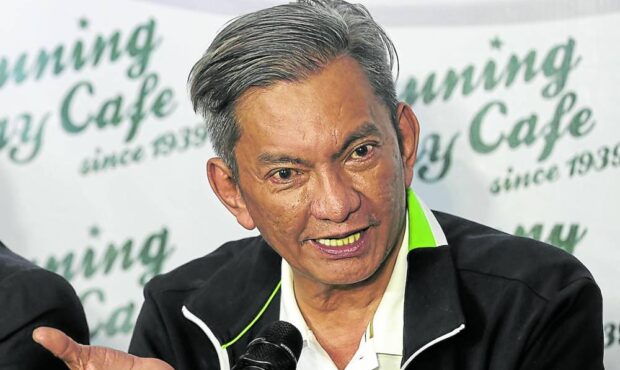MANILA, Philippines — Albay Rep. Joey Salceda proposed on Sunday that the Department of Social Welfare and Development (DSWD) integrate its planned food stamp program with efforts by the Department of Agriculture (DA) to expand the market for local farm products.
“Food stamps, as envisioned and implemented in other countries, are really agricultural programs. They aim to bridge rural surpluses with food-poor urban communities. That way, we address both urban poverty and rural poverty,” Salceda, the chair of the House ways and means committee, said in a statement.
“Around 30 percent of farmers are poor. So, if you want to make this program sustainable, you link it with boosting farmer incomes,” Salceda added.
He noted that under the food stamp program, as originally implemented in the United States, a specific amount could be set aside for general food items and special stamps or vouchers for surplus produce.
“What the farmers can get for [their] surplus produce are food stamps for the general program. So, you help solve their food insecurity issues. You take out the [production] surplus, helping manage prices. And you provide free surplus food to those who need it. It’s a great synergy,” Salceda pointed out.
“So, I think the DSWD should really team up with the Department of Agriculture on this program,” he said.
President Marcos concurrently heads the DA.
The DSWD is set to start the food stamp’s pilot program in July. This will initially cover about 300,000 families.
The Asian Development Bank has provided a $3-million grant to jump-start the pilot program until December.
Funding sources
Social Welfare Secretary Rex Gatchalian said the “Walang Gutom 2027 Food Stamp Program” aims to eventually help a million poor households across the country and require an annual funding of about P40 billion.
Salceda proposed that the government consider sourcing funds for the food stamp program from sweetened beverage tax revenues as well as from a proposed tax on junk food.
He said “The [Tax Reform for Acceleration and Inclusion] law, which introduced sweetened beverage taxes, earmarks around 30 percent of its revenues to social measures, including, very specifically, ‘social mitigating measures and investments in education; health, targeted nutrition; and antihunger programs for mothers, infants, and young children.’”
“I strongly suggest that if we are going to do this, let’s pilot it for poor sugar farmers,” Salceda said, as he noted that no programs were earmarked for sugar farmers under the law.
He added: “If you will earmark the revenues entirely for this program, I think junk food taxes also stand a chance in Congress. So, it has to be a Department of Health-DA-DSWD effort, with the economic managers guiding us about funding. If we are going to discuss new taxes on any junk food, funding nutritional programs should be part of the mix.”
‘Send a draft bill’
The country’s economic team is seeking an increase in sweetened beverage taxes.
But Salceda said he has not received an official request from the Department of Finance for his committee to tackle such a measure.
“But if they send a draft bill for me to file and take up, funding nutritional programs with a hard earmark has to be part of the mix,” the lawmaker said.
